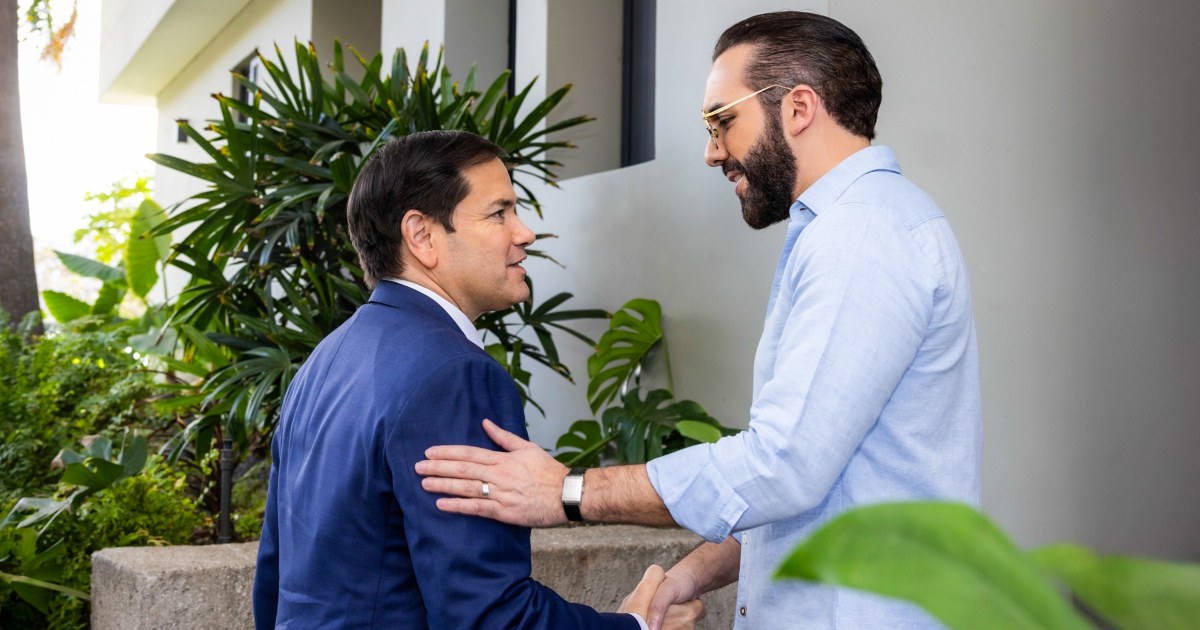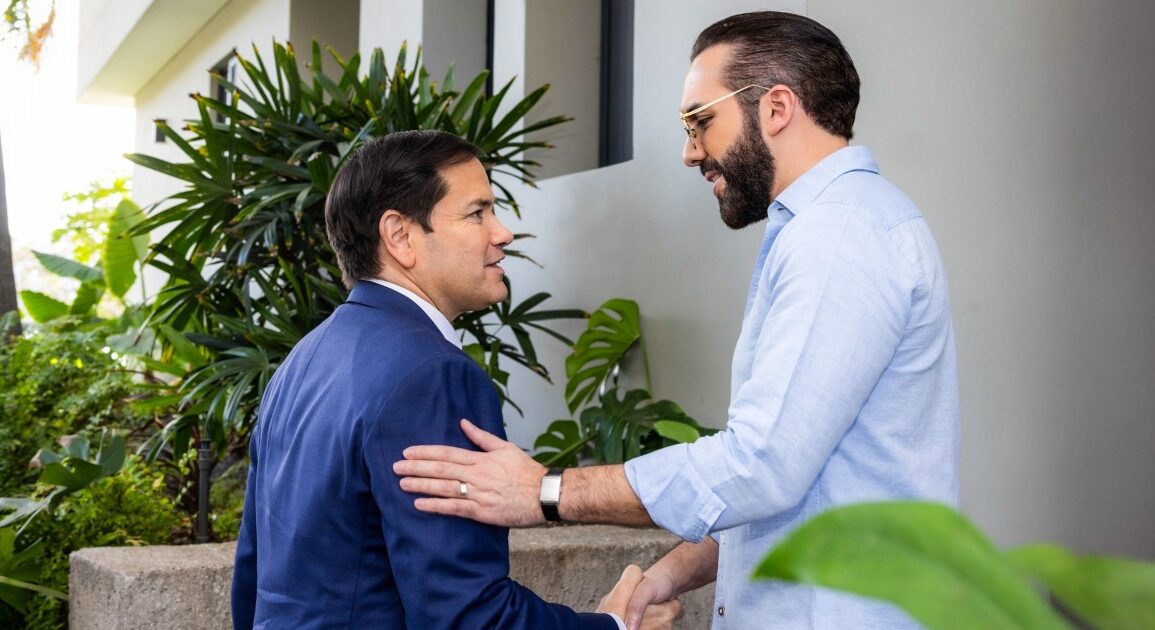
U.S. Secretary of State Marco Rubio responded to criticism Tuesday after he announced that Salvadoran President Nayib Bukele had offered to accept deportees from the U.S. of any nationality, as well as violent U.S. citizens currently serving time in American prisons.
“That’s an offer President Bukele made. Obviously, we’ll have to study it on our end,” Rubio said Tuesday afternoon while speaking to reporters in Costa Rica, the third stop of his first foreign trip as secretary of state. “There are obviously legalities involved. We have a Constitution, we have all sorts of things, but it’s a very generous offer.”
The administration of President Donald Trump has not yet made a decision on the offer, Rubio said.
Three legal and immigration experts who spoke with NBC News raised questions about the legality of such actions and anticipated significant legal pushback on any effort to deport incarcerated U.S. nationals to another country.
“The U.S. can’t deport one of its own citizens. Deportation is for noncitizens only,” said Jennifer Gordon, a law professor at Fordham Law School.
“But that’s not the end of the story. There’s a second set of questions about whether the U.S. could transfer a U.S. citizen prisoner to another country to serve their sentence,” she said.
Current laws “would categorically preclude most U.S. citizens and residents from serving their sentence in El Salvador,” said John Fishwick, a former U.S. attorney in Virginia.
In the U.S., an offender could only be sent to a country where they’re a citizen — and that’s only with their consent and for certain offenses that apply in both countries, he said.
Fishwick added that “housing citizens and residents in a prison located in a foreign state would raise constitutional concerns, especially regarding cruel and unusual punishment … Would El Salvador be considered an agent of the United States? What court would have jurisdiction over prisoner disputes?”
Rubio met with Bukele in El Salvador on Monday as part of his ongoing trip through Latin America as he pressures government leaders in the region to do more to align with Trump’s policy priorities, including his crackdown on immigration.
They discussed an array of deals; the most controversial being Bukele’s offer “to house in his jails dangerous American criminals in custody in our country, including those of U.S. citizenship and legal residents,” Rubio said.
‘An extraordinary gesture’
In an post on X, Rubio described Bukele’s offer as “an extraordinary gesture never before extended by any country.”
“Very productive meeting with Salvadoran President @nayibbukele,” the post reads. “His commitment to accept and incarcerate criminals from any country, including from violent gangs like MS-13 and Tren de Aragua, will make America safer.”
Fordham’s Gordon said, “Can the U.S. deport Salvadorans convicted of crimes to El Salvador? Yes. Can El Salvador keep those people in its own prisons? Yes. But as to U.S. citizens, it’s not an immigration question. It’s a prison policy question.”
NBC News reached out to the Department of Justice and the Federal Bureau of Prisons for comment, but did not get an immediate response.
In another post on X, Bukele clarified that El Salvador is “willing to take in only convicted criminals (including convicted U.S. citizens) into our mega-prison (CECOT) in exchange for a fee.”
“We have offered the United States of America the opportunity to outsource part of its prison system,” Bukele’s post reads. “The fee would be relatively low for the U.S. but significant for us, making our entire prison system sustainable.”
The Terrorism Confinement Center, or CECOT, as Bukele referred to it, is a Salvadoran prison built to house 40,000 people. Instances of extreme overcrowding and torture by guards have been documented at this prison by human rights organizations such as the Human Rights Watch and Amnesty International.
Bukele’s office did not respond to an NBC News request seeking comment and further details on the offer.
After meeting with Bukele on Monday, Rubio said he briefed Trump on this offer, along a couple other ones.
According to Rubio’s office, Bukele also agreed to continue accepting Salvadoran nationals deported from the U.S., which El Salvador is already doing.
Bukele also offered to accept foreign nationals from other countries who are arrested in the U.S. for violating U.S. immigration laws.
El Salvador had previously signed an agreement in 2019, known as a “safe third country” deal, to receive non-Salvadorans detained in the U.S. — but it was never implemented because of the Covid pandemic.
Kathleen Bush-Joseph, policy analyst at the Migration Policy Institute, said that noncitizens and people who have been granted protections preventing the U.S. from deporting them to a country where they may face persecution or torture “could be sent to a third country as long as that’s not the country where they would face persecution or torture.”
But as the Trump administration implements policies allowing officials to bypass regular immigration law and speed up deportations of anyone with a removal order, it may become harder for noncitizens to challenge their deportations, even if they’re sent to a country where they’re not from, Bush-Joseph added.
Gordon said she would anticipate constitutional and due process challenges if there are attempts to deport U.S. citizens.
This post was originally published on this site be sure to check out more of their content.









